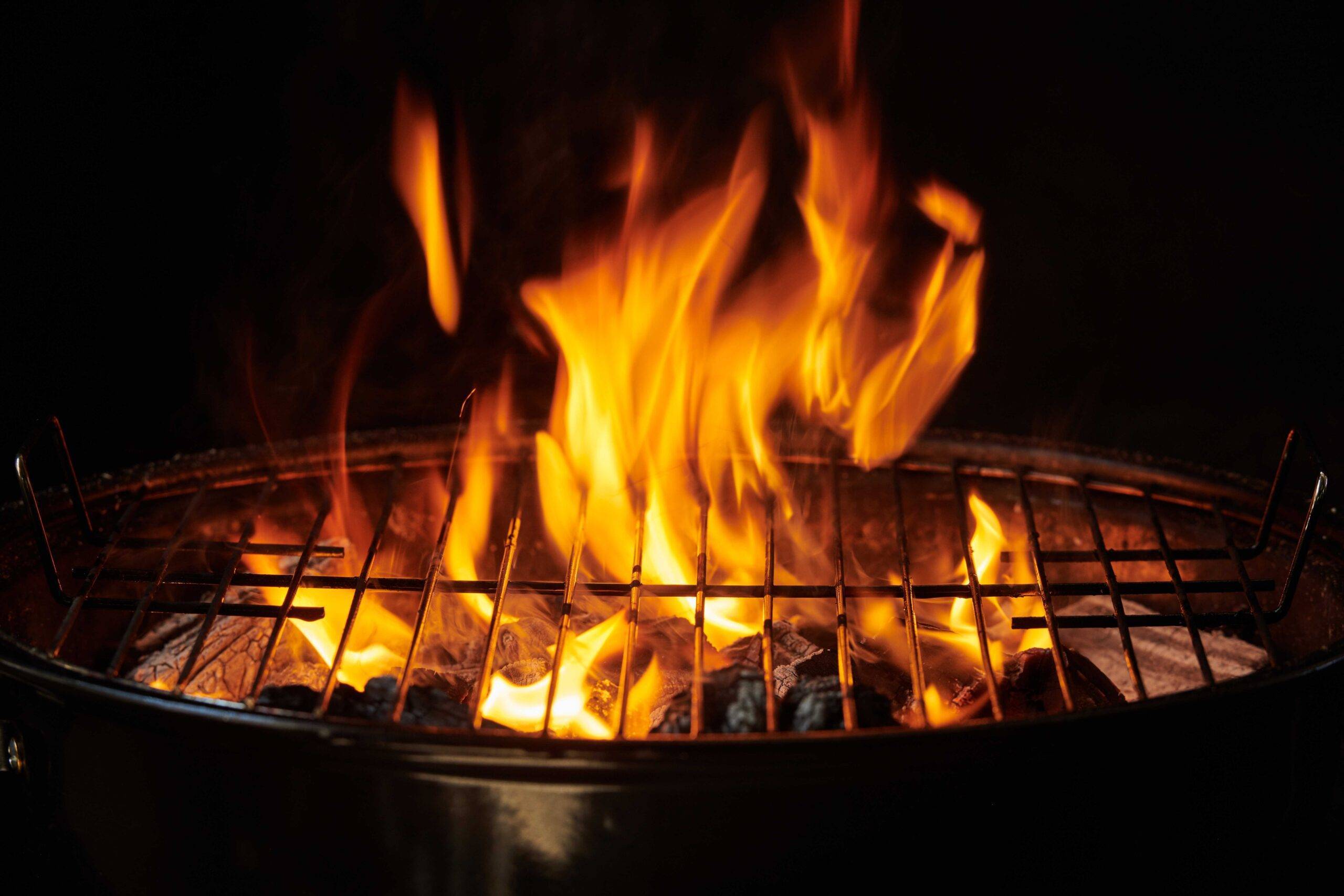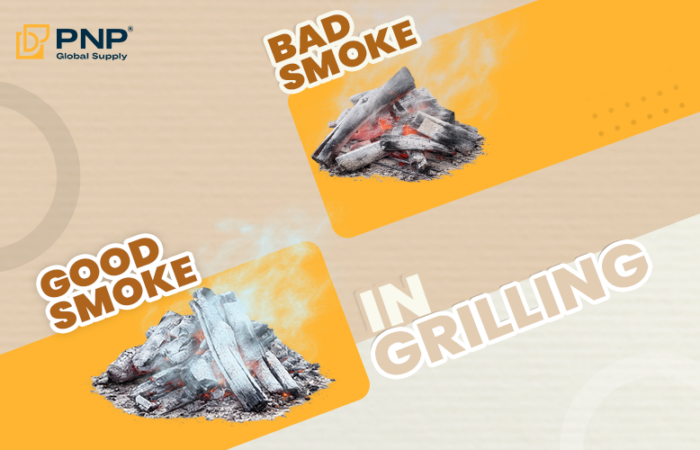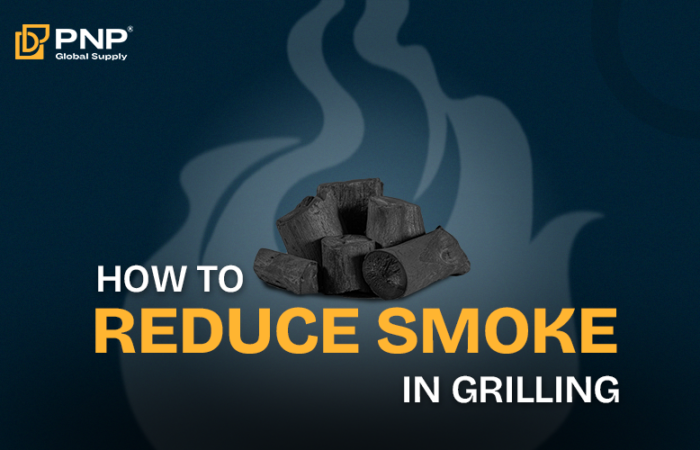Coconut shells and sawdust are among the top choices for making charcoal briquettes. Yet, many customers struggle to distinguish between these two types. To assist you in selecting the right charcoal briquette for your needs, PNP will compare the key features of sawdust charcoal briquettes and coconut charcoal briquettes.
Different raw materials
The charcoal names speak for themselves. To make coconut briquettes charcoal, we need to collect dried coconut shells. For sawdust charcoal, the ingredient is utilized for sawdust collected from wood production. It can be seen that both types of charcoal originate from organic materials instead of wood logs, protecting the environment.

Distinguished production process
The way to make these 2 sawdust briquettes is also different. Compared to sawdust briquette charcoal, coconut charcoal involves more steps and can be a little more complex.
How to make sawdust briquettes charcoal?
The production process of sawdust briquette charcoal involves 6 steps, starting from crushing the raw materials, sieving, and ending with the carbonizing step. To discover the whole series of steps to make sawdust charcoal, check out this link!
How to make coconut briquettes charcoal?
While the production process of sawdust charcoal ends with carbonization, that’s the first step of coconut briquette charcoal. To be more specific, the process starts with collecting dried coconut shells and burning them in the kilns. After that, we will grind those carbonized shells into charcoal powder.

The process continues with mixing with binders to help the charcoal powder easily form into different shapes . After shaping them into hexagons or squares, we will burn them one more time to harden them. And that is also the last step to making coconut briquettes charcoal.
Here’s a simple guide on how to identify different types of charcoal briquettes.
The performance of sawdust charcoal briquette and coconut charcoal briquette
The burning hours
Sawdust charcoal has one of the longest burning hours, of about 6 hours. Meanwhile, coconut charcoal briquette can only burn for 3 – 3.5 hours. If customers are looking for a type of charcoal that can burn longer, sawdust charcoal is a more suitable choice!
The ability to produce strong, consistent heat
To discover the ability to produce strong, consistent heat, we will look at each charcoal’s calorific values. The calorific value of sawdust charcoal is approximately 7900 Kcal/kg, while that of coconut briquette charcoal is about 7000. This means that sawdust charcoal can produce a slightly stronger fire with more consistent heat!

The ash content
Both 2 types of briquettes charcoal produce no ash and smoke. This is not only more environmentally friendly but also makes cleaning grills much easier. Needless to say, sawdust charcoal and coconut charcoal are both good choices for grilling.
The usage of sawdust briquette charcoal and coconut briquette charcoal
The difference between the 2 types of briquettes charcoal also lies in their usage. While one is the top grilling charcoal, the other is widely preferred in burning shisha. Can you guess the usage of each one?
Sawdust charcoal briquette – the top grilling charcoal in the market
Over the years, sawdust briquette charcoal has gained popularity in the grilling charcoal segment. With long burning hours, sawdust briquettes can burn for up to 6 hours strongly and consistently. Its smokeless and ashless feature is also a strong plus to grilling restaurants! In terms of coconut charcoal, even though it is less popular in grilling, it is still very suitable for BBQ parties.

Coconut briquettes charcoal – the rising star
Coconut charcoal may not be the top grilling charcoal but it is one of the most suitable charcoal for burning shisha because of its various benefits. Firstly, customers can easily ignite a fire with coconut briquettes, making it much more convenient to smoke shisha. Plus, its long burning time allows customers to enjoy shisha without the need to replace it too frequently. Last but not least, coconut charcoal briquette produces no smoke and ash while burning, making it very suitable for indoor smoking.
Other usages of sawdust and coconut charcoal
Apart from grilling, sawdust charcoal can be used for heating inside the house due to its smokeless feature. Meanwhile, coconut shell charcoal can be a good source of fuel in the production of iron or smelting.
The comparison table of 2 types of charcoal briquettes
To help customers easily distinguish the 2 types of briquette charcoal, below are the summary table of their characteristics.
|
Characteristics |
Sawdust briquettes charcoal |
Coconut briquettes charcoal |
|
Raw materials |
sawdust (wood, bamboo,…) | coconut shells |
|
Burning time |
5 – 6 hours | 3 – 3.5 hours |
|
Calorific value |
7900 Kcal/kg | 7000 Kcal/kg |
|
Ash content |
Max 3% |
|
|
Eco-friendly features |
No ash, no smoke |
|
|
Usage |
BBQ, heating | BBQ, heating, industrial application |
Choose the best option for your grilling and cooking needs today!
PNP – the leading briquettes charcoal supplier from Vietnam
Above is our analysis of the two types of briquette charcoal. Both coconut and sawdust briquettes have their unique benefits, though they differ slightly in burning hours. If you’re unsure which charcoal suits your needs best, PNP is happy to provide samples of both types for your evaluation. We also invite you to visit our factory to witness the production process firsthand.
As a leading Charcoal Supplier and Charcoal Manufacturer in Vietnam, PNP Charcoal prides itself on delivering high-quality, eco-friendly charcoal products. Our extensive experience and global partnerships underscore our commitment to excellence. Whether you’re looking for premium coconut or sawdust briquettes, trust us to meet all your Charcoal in Vietnam needs with reliability and sustainability.
________________________________
Contact us for more information
Facebook: PNP Charcoal
Instagram: PNP Charcoal
Email: info@pnpglobalsupply.com




